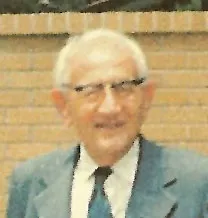
Name: George Pólya
Birth Year: 1887
Nationality: Hungarian-American
Profession: Mathematician and academic
Death Year: 1985
The Legacy of George Pólya: A Pioneering Mathematician
George Pólya, born on December 13, 1887, in Budapest, Hungary, stands as one of the most influential mathematicians of the 20th century. His contributions to mathematics, particularly in the fields of probability, combinatorics, and mathematical education, have laid the groundwork for future generations of mathematicians and scholars.
After earning his doctorate from the University of Budapest, Pólya's academic journey took him through several prestigious institutions, including the University of Zurich and Stanford University, where he made significant strides in research. His expertise not only encompassed theoretical mathematics but also extended to the practicalities of problem-solving, making him a revered educator.
Contributions to Mathematics
Pólya’s work on the theory of complex variables and his studies in partial differential equations showcased his deep understanding of mathematical principles. However, it was his book, How to Solve It, published in 1945, that cemented his reputation as an educational pioneer. This work introduced a systematic approach to problem-solving that remains influential in mathematics education today.
The Pólya Enumeration Theorem
Among his many contributions, the Pólya Enumeration Theorem is particularly noteworthy. This theorem, which addresses the counting of distinct objects under symmetrical transformations, has applications in various fields, including chemistry, computer science, and combinatorial mathematics. It exemplifies Pólya's ability to connect pure mathematics with real-world applications.
Impact on Educational Methods
Pólya was also known for his innovative ideas on teaching mathematics. He believed in fostering problem-solving skills in students, encouraging them to think critically and creatively about mathematical challenges. His pedagogical approach has inspired countless educators to implement similar strategies in their own classrooms. His emphasis on the importance of understanding concepts rather than merely memorizing formulas has transformed the landscape of mathematics education.
A Lasting Influence
George Pólya's impact on mathematics is profound and far-reaching. His theories continue to be relevant, and his educational philosophy encourages students to view mathematics as a dynamic and exciting field. In recognition of his work, Pólya received numerous accolades throughout his lifetime, including membership in various prestigious mathematical societies.
Pólya's life journey came to an end on September 7, 1985, in Palo Alto, California, leaving behind a legacy that endures in both the academic and practical realms of mathematics. Today, institutions around the world honor his contributions through awards, lectures, and thriving mathematical programs that reflect his innovative teachings.
In conclusion, George Pólya's legacy as a mathematician and educator is a testament to the power of problem-solving and creative thinking in mathematics. His works continue to inspire new generations, ensuring that his ideals and insights will be part of the mathematical discourse for years to come.



